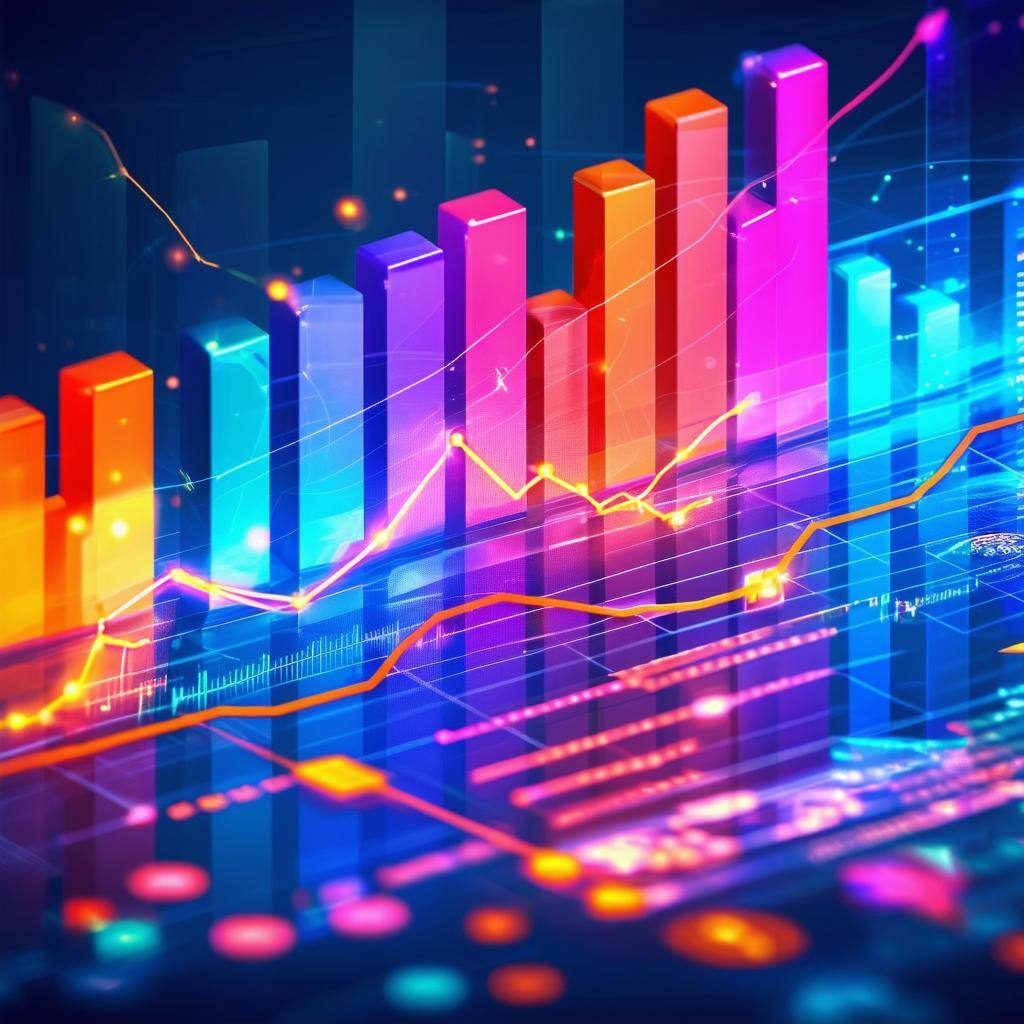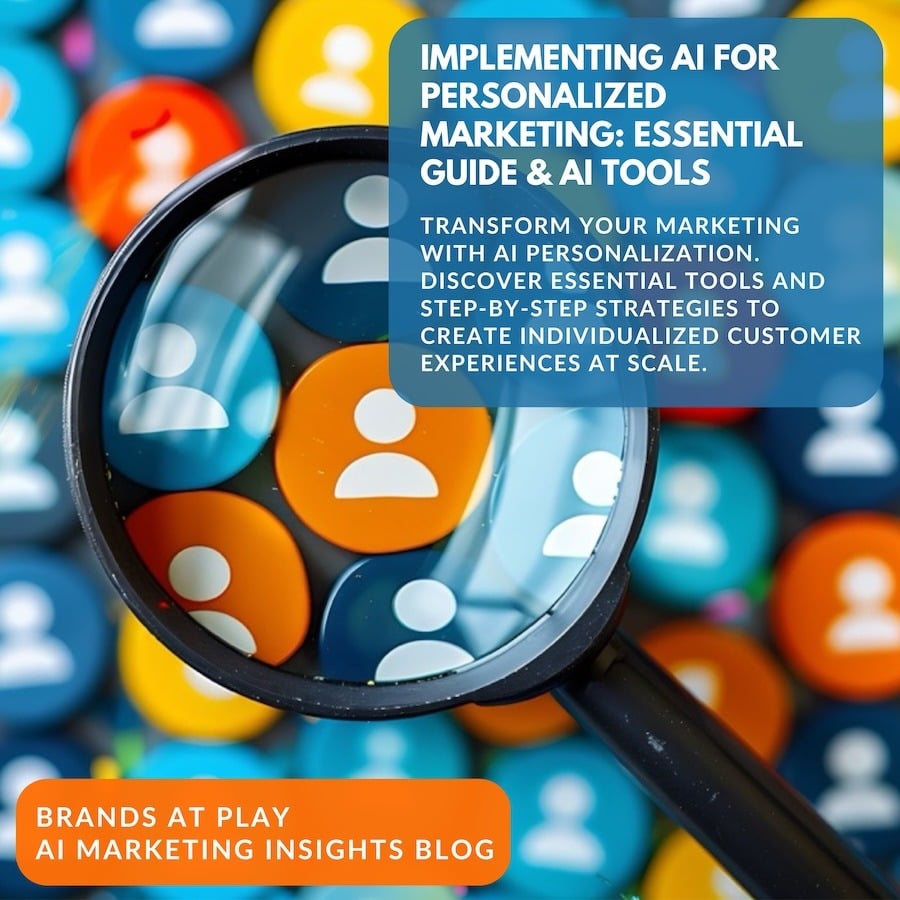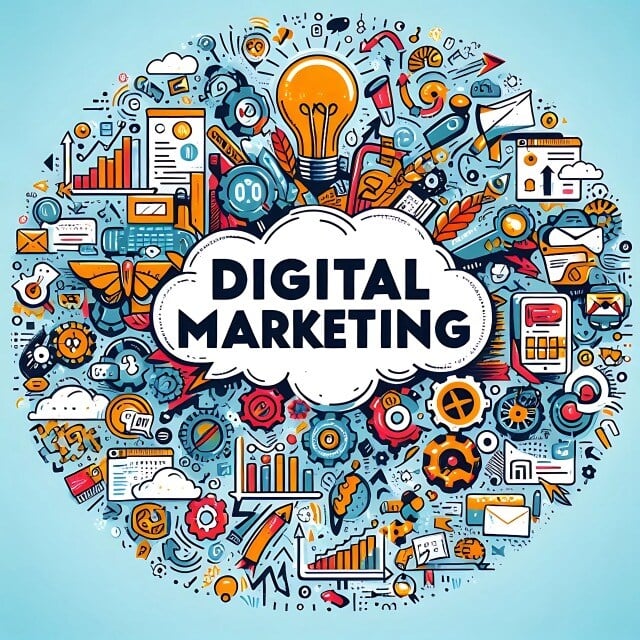What is Personalized Marketing? - The 2025 Guide for CMOs & Marketers
According to Salesforce's State of the Connected Customer Report, 73% of consumers expect companies to understand their unique needs and...
5 min read
Brands at Play : Dec 1, 2024 10:52:54 PM


Marketing campaigns once moved at the speed of human analysis, but artificial intelligence has fundamentally changed the game of customer engagement. Traditional campaign optimization often relied on delayed insights and manual adjustments, a system that could no longer keep pace with the dynamic digital environment. Marketers were accustomed to plowing through periodic reports, often weekly or monthly, to discern patterns and make necessary tweaks. This time-consuming process meant that by the time adjustments were made, the data was often outdated, leaving campaigns to underperform for extended periods.
Enter AI, the game-changer that has revolutionized real-time marketing.
AI's ability to process vast amounts of data instantaneously transforms how marketers approach campaign optimization. Through real-time data processing and automated adjustments, AI empowers brands to make swift changes based on current performance metrics.
For instance, if a pay-per-click (PPC) campaign is underperforming, AI can optimize ad spend within hours, ensuring that marketing efforts are always aligned with the latest insights.
AI's prowess in data analysis is nothing short of remarkable. It processes data at a scale and speed that traditional analytics tools can only dream of. By identifying trends and anomalies instantaneously, AI allows marketers to stay ahead of the curve. For example, if there's a sudden spike in engagement from a specific demographic, AI can swiftly reallocate the budget to capitalize on this trend, optimizing campaign effectiveness in real time.
AI doesn't just react to current data; it uses historical and real-time information to predict future outcomes. This predictive capability enables marketers to anticipate which audience segments are most likely to convert and tailor their strategies accordingly. Predictive analytics in marketing campaign optimization helps marketers maximize their campaign's potential and achieve better results by improving targeting accuracy.
The dynamic nature of AI allows for automated adjustments to bids, targeting, and content. This flexibility reduces wasted spend and continuously enhances performance. For example, if certain keywords in a Google Ads campaign are underperforming, AI can reduce bids within minutes, ensuring that resources are allocated efficiently and effectively.
AI ensures that marketing messages and performance metrics remain consistent across multiple platforms. By harmonizing data from various channels, AI facilitates a unified messaging strategy. For instance, insights from Google Ads can inform adjustments to Facebook Ads, LinkedIn, and other platforms, creating seamless and cohesive multi-channel advertising campaigns.
AI's automation capabilities significantly reduce the time marketers spend on manual tasks like data analysis and bid adjustments. This improved efficiency allows marketing teams to focus on strategy and creativity, ultimately driving better outcomes. According to Deloitte, companies using AI report a considerable reduction in time spent on campaign management, freeing up resources for innovation.
AI-driven campaigns are optimized continuously, ensuring that every dollar spent on advertising is used effectively. The result is a higher return on investment (ROI), with AI-optimized campaigns often yielding significantly better results compared to traditional methods. By maximizing the impact of ad spend, AI helps brands achieve their marketing goals more efficiently.
AI's ability to personalize ads and content based on real-time insights creates a more engaging customer experience to increase engagement. By delivering tailored offers and messages, brands can connect with their audience on a deeper level, fostering loyalty and driving conversions.
In a world where market conditions can change rapidly, AI equips marketers with the tools to pivot quickly. Whether it's adjusting SEO content optimization to improve web traffic or ad messaging during a PR issue or responding to a sudden market shift, AI allows brands to adapt in real-time, maintaining their competitive edge.

AI's personalization capabilities are a boon for marketers aiming to enhance customer experiences. By analyzing user behavior and preferences, AI can deliver personalized content that resonates with individual users. This level of customization not only improves engagement rates but also builds stronger relationships between brands and their customers.
For example, during a marketing campaign, AI can tailor offers based on a user's browsing history and past interactions. This targeted approach ensures that customers receive relevant and timely messages, leading to higher conversion rates and increased satisfaction.
Amazon faced the challenge of high cart abandonment rates. By implementing AI-driven real-time retargeting ads with dynamic discount offers, they were able to reduce cart abandonment by 25% within a month. This success story highlights AI's potential to address common e-commerce challenges effectively.
HubSpot, a leader in inbound marketing software, faced challenges with low engagement on their LinkedIn Ads. By leveraging AI-driven dynamic adjustments to ad targeting and content, HubSpot achieved a remarkable 40% increase in click-through rates. This example underscores the transformative impact of AI in elevating B2B marketing strategies.
Building on the use cases we've explored, let's dive into the specific AI and automation tools that can bring these capabilities to life in your marketing campaigns. While the market offers countless options, we've curated a selection of powerful solutions that excel in real-time optimization, predictive analytics, and automated campaign management. Each tool below has been evaluated based on its practical application in addressing the key challenges and opportunities we discussed earlier. Whether you're looking to enhance your current stack or completely transform your campaign optimization approach, these tools represent the cutting edge of AI-powered marketing technology. Here’s a curated list of the best platforms to elevate your marketing campaigns:
HubSpot
A dynamic platform that offers a comprehensive suite of tools for inbound marketing, sales, and customer service. HubSpot's AI-driven features help in automating repetitive tasks, optimizing content, and providing actionable insights to refine your campaigns.
Marketo Engage
Known for its robust marketing automation capabilities, Marketo Engage empowers businesses to create personalized experiences at scale. Its AI tools assist in lead management, email marketing, and campaign analytics, ensuring your strategies are both efficient and impactful.
Salesforce Marketing Cloud
This platform integrates AI to deliver personalized customer journeys. With features like predictive analytics and audience segmentation, Salesforce Marketing Cloud helps marketers optimize their campaigns for better engagement and conversion rates.
Pardot
A B2B marketing automation solution by Salesforce, Pardot excels in lead nurturing and scoring. Its AI capabilities enhance campaign management by providing insights into customer behavior and automating follow-up actions.
ActiveCampaign
Combining email marketing, automation, and CRM, ActiveCampaign is a versatile tool for businesses of all sizes. Its machine learning algorithms predict customer actions, allowing marketers to tailor their campaigns for maximum impact.
Mailchimp
Beyond its renowned email marketing services, Mailchimp offers AI-powered tools for audience segmentation and campaign optimization. Its user-friendly interface makes it accessible for businesses looking to enhance their marketing efforts without complexity.
Adobe Experience Cloud
A powerhouse for digital marketing, Adobe Experience Cloud leverages AI to deliver personalized content and optimize customer experiences. Its analytics and automation tools provide deep insights, helping marketers fine-tune their strategies.
Sendinblue
An all-in-one marketing platform, Sendinblue offers AI-driven solutions for email marketing, SMS campaigns, and more. Its automation features simplify campaign management, making it easier to connect with your audience effectively.
Harnessing these tools can transform your marketing campaigns, driving growth and fostering deeper connections with your audience. Embrace the future of marketing with these innovative solutions and watch your strategies soar.

The future of AI in marketing is bright, with several emerging technologies poised to further revolutionize the industry. Multimodal campaign management, where AI integrates text, image, and video insights for holistic optimization, is just one example. Additionally, predictive customer journeys and hyper-personalization are on the horizon, offering marketers new ways to connect with their audience.
AI's effectiveness hinges on accurate, high-quality data. Poor data quality can lead to flawed insights and suboptimal adjustments. To overcome this challenge, brands must invest in data cleansing and integration processes, ensuring that their AI tools access reliable information.
The complexity of AI tools can be daunting for marketers lacking technical expertise. To bridge this knowledge gap, organizations can partner with AI experts, like Brands at Play, or invest in training programs that empower their teams to harness AI's full potential.
While AI tools can be costly, especially for small businesses, there are scalable solutions available. Starting small with scalable AI tools allows brands to see initial results and justify further investment as their marketing efforts grow.
As we look to the future, AI is set to play an even more significant role in marketing. By 2030, it's predicted that a substantial percentage of marketing campaigns will rely heavily on AI for optimization. The continued integration of AI into marketing strategies promises to deliver more personalized, efficient, and effective campaigns, setting the stage for an exciting new era in digital marketing.
AI is revolutionizing real-time marketing campaign optimization by delivering instant feedback, boosting ROI, and enhancing customer experiences. For marketers looking to stay ahead, now is the time to explore AI tools and strategies, ensuring their campaigns are optimized for success in an increasingly competitive landscape.
Ready to transform your campaigns with AI? Reach out today to Brands at Play to learn how you can harness the power of AI to achieve your marketing goals.

According to Salesforce's State of the Connected Customer Report, 73% of consumers expect companies to understand their unique needs and...

What Is Data-Driven Marketing? Data-driven marketing involves leveraging insights from customer data, market research, and real-time analytics to...

With thousands of digital marketing tools and platforms available in 2025, the tools you choose can make or break your strategy. While popular AI...